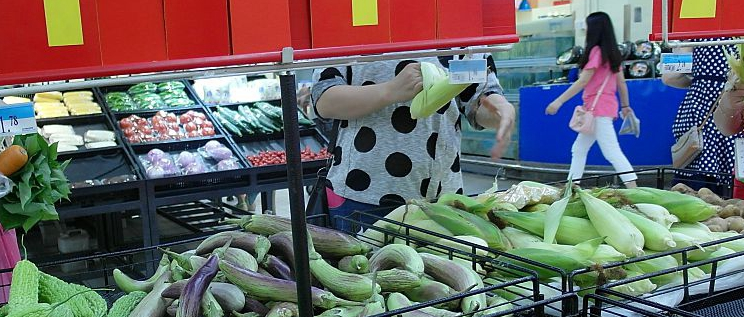A surge in industrial activity has pushed up China’s annual economic growth rate to 6.9 per cent in the first quarter, according to government statistics released on Monday,
周一发布的中国政府统计数据显示,工业活动的急剧攀升,将今年第一季度中国经济同比增长率推升至6.9%。
Growth for the first three months of 2017 came in above Chinese premier Li Keqiang’s prediction that full year growth would be “around 6.5 per cent”, after recording 6.7 per cent growth in 2016.
2017年头三个月的增长速度超过了中国总理李克强关于全年增速将在“6.5%左右”的预期。2016年,中国经济增长了6.7%。
Industrial production for March rose 7.6 per cent compared with the same month last year, surpassing expectations of 6.3 per cent growth, while retail sales for the month jumped 10.9 per cent.
3月份,中国规模以上工业增加值同比增长7.6%,超过了6.3%的增幅预期,社会消费品零售总额同比跃升10.9%。
Fixed asset investment in the first quarter expanded 9.2 per cent, beating forecasts of 8.8 per cent.
一季度,全国固定资产投资同比增长9.2%,超过了8.8%的预期。

China has kept growth relatively robust thanks in part to rising levels of corporate debt, with credit continuing to grow at more than twice the rate of the underlying economy. The country’s overall indebtedness is creeping towards 300 per cent, most of it concentrated in the corporate sector.
中国保持了相对强劲的增长,部分要归因于企业债的攀升,中国的信贷继续以基础经济增速两倍多的速度增长。中国的总体负债率正悄然接近300%,其中多数债务集中于企业部门。
The relative predictability of China’s official growth figures masks big swings in specific regions or industries.
中国官方增长数据的相对可预测性,掩盖了特定地区或产业的巨大波动。
The four-year slump in the oil, coal and steel industries afflicted the northern and western parts of the country. A recovery in resources prices since the first quarter of 2016 has buoyed the economy and helped producer prices return to positive territory in September after four years of deflation.
石油、煤炭和钢铁产业长达四年的低迷,令中国北部和西部陷入困境。2016年第一季度以来的资源价格回升提振了经济,帮助工业生产者出厂价格指数(PPI)在滞留萎缩区间达四年之久后、于去年9月重返扩张区间。













